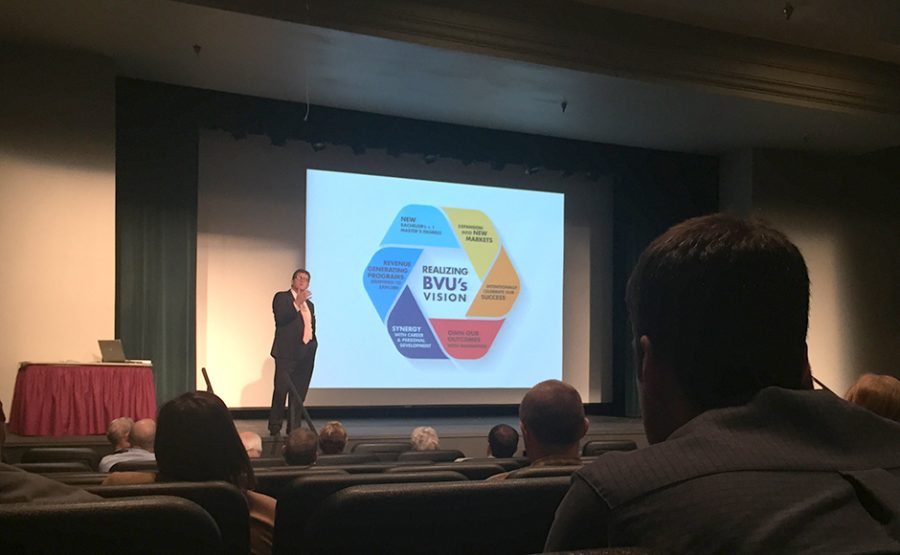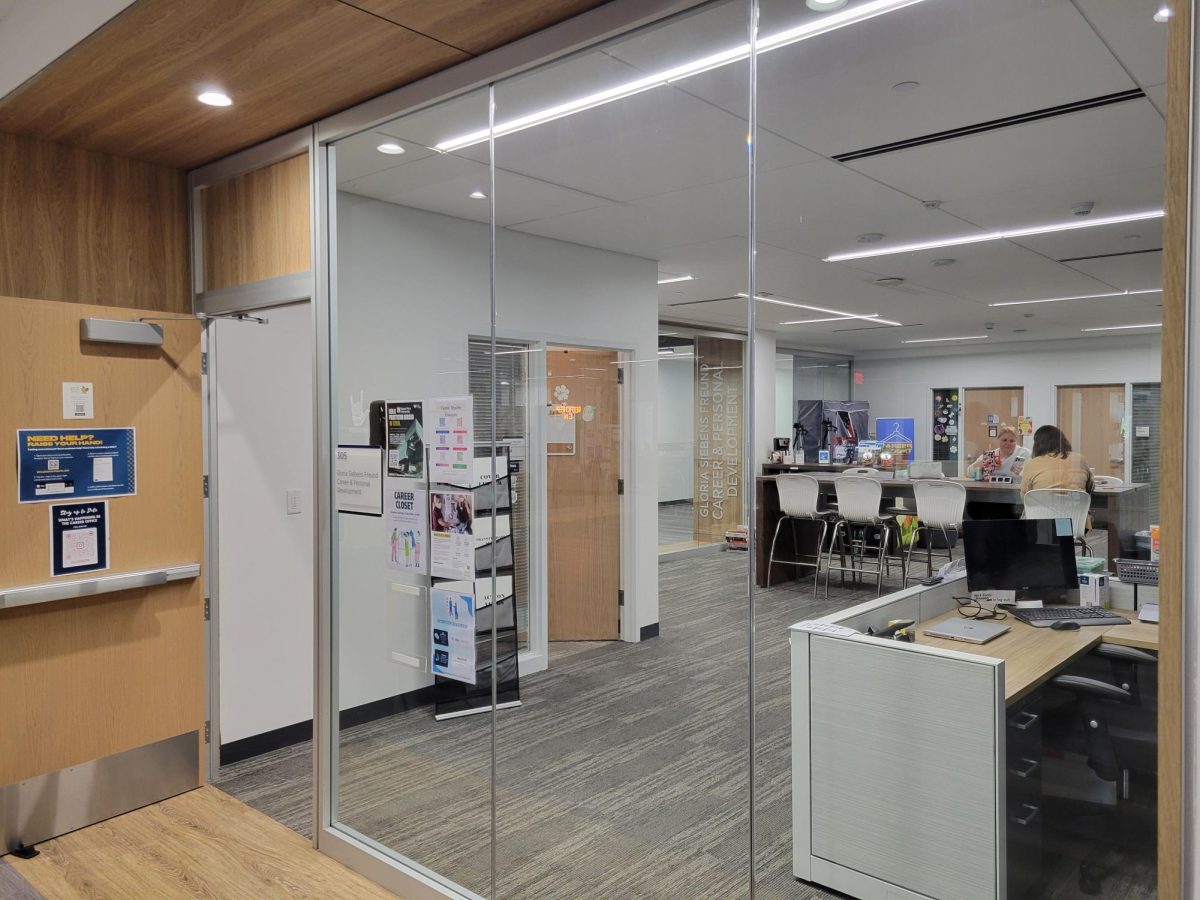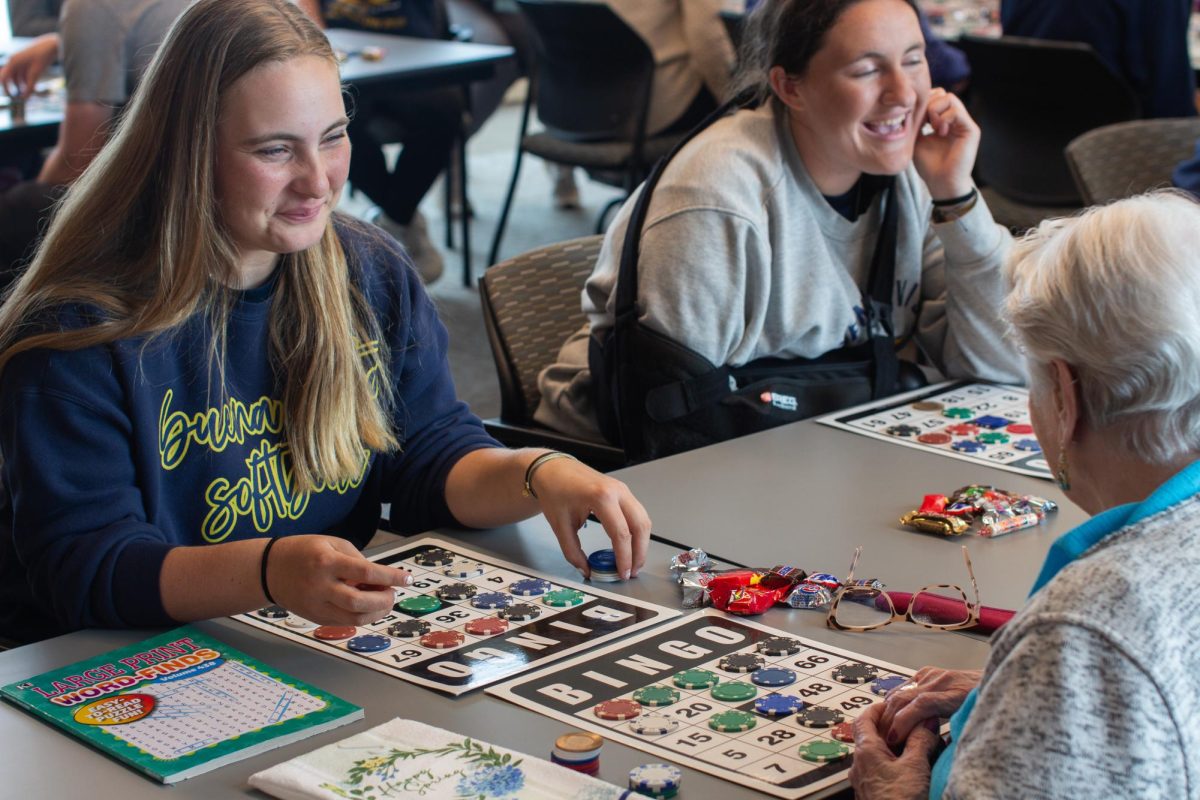Aaron Burns & Courtney Van Haaften | Co-Editors-in-Chief and Kiley Wellendorf | News Editor
The days following the announcement of the decisions of prioritization contained multiple meetings between administration, faculty and staff, and students. The faculty and staff at Buena Vista University (BVU) were addressed by President Fred Moore during the monthly community meeting on Wednesday, May 13. The meeting was exclusively for faculty and staff to allow the opportunity to openly discuss the prioritization results. Moore outlined the document that was sent to faculty and staff on Tuesday, May 12 and provided feedback on the decisions made for prioritization
In the first year following Prioritization, the goal was to save $1.03 million. After decisions have been made, the projected savings in the first year is now almost $1.7 million. The goal was originally $3 million, but the university is now on track to save $3.011 over the next five years. Forty-three percent of these savings have been due to reallocations of Academic Programs and 57% due to reallocations of administrative and co-curricular programs.
Of the 35 positions throughout campus that were eliminated, 25.7% (nine individuals) came from faculty and 74.2% (26 individuals) came from staff. Seven were either supervisors or directors.
During an interview with The Tack ONLINE, President Moore further elaborated some of the decisions concerning program and position eliminations.
“There were more eliminations in the School of Communication and Arts (C&A) and the School of Social Science, Philosophy, and Religion. Probably more in C&A than the other schools, it may be a little bit higher,” Moore said. “I think that ought not be a reflection that programs in C&A aren’t strong. We live in a time in higher education where some of the programs in Communication and Arts–and I find this regrettable–they don’t stimulate the same degree of student interest that they did 10- or 20-years ago. That’s why you saw more program eliminations in those two, C&A and Social Science, Philosophy, and Religion.”
With the savings retained from the prioritization process, BVU plans to invest in compensation for employees, faculty development, career and personal development, the Social Science and Arts Center for Sculpture and Ceramics bond, marketing, the Graduate and Professional Studies (GPS) program, outsourcing grants, and the new initiatives.
“We want to make sure that we have the best and the brightest in the classroom to serve the students. We also want to treat the people that work here equitably and fairly. Compensation is not the only reason people come to work and do a good job, but it is an important factor in the decision to come to work here and stay. It also sends a message to faculty and staff about how the institution values them. It’s a very important consideration in recruiting, hiring, and retaining the best people that we can for students. At a time when, not just here, but budgets across Iowa have been very tight, salary increases have been difficult to maintain. We placed a very high priority on that,” Moore said.
The four big ideas that BVU will be focusing on include Signature Programs and Bachelor’s + 1, training and development, guarantees, and market-tested programs targeted at revenue. The goals through these reallocations are program quality, increased enrollment, new forms of revenue, student service, financial flexibility, and a sense of focus.
“We were looking for programs where we already exhibit significant quality and also where there is strong enrollment now and potential for even stronger enrollments in the future,” Moore said. “Taking high quality programs with significant enrollment potential and promoting them more extensively than we have in the past. At the end of the day, it was about quality in the program and enrollment potential. That does not mean we are going to ignore other programs. We wanted to begin to promote them more significantly than we have done in the past in hope to giving ourselves a real lift.”
Employees of the university wrote PIFs in which they requested other allocations for their own respective programs. Moore said that those would be addressed and taken care of in due time. The first order of business was to take care of staffing issues and the focus of BVU’s vision.
The proposal of two new interdisciplinary programs (visual arts & design major and strategic communication major) were from the ideas formed in during the writing of the PIFs.
“We’re looking at a way of combining what we are already doing. Our students do this all the time anyways. Look at the people in musical–a lot of them are digital media majors, and music majors. We have music production people involved in that. We are already collaborating. So let’s be a little more intentional and meet some of these emerging markets for jobs,” Dr. Bethany Larson, steering committee member, said.
Beyond the four main initiatives BVU is now focusing on, other topics of consideration have been brought to the university’s attention. These topics include January Interim, document imaging, a campus calendar, cloud-based email, and new interdisciplinary programs.
Following the Student Open Forum held Thursday, May 14, Chase Werden, a junior political science and public administration double major, commented on his perceptions of prioritization and the information that has been presented to students.
“I think it’s difficult in any business whether it be profit, non-profit, non-governmental organization, or whatever it might be – it’s difficult to let people go. It’s difficult to eliminate positions, and it’s difficult to consolidate programs because you do lose human capital in areas,” Werden said. “With human capital, we’re dealing with people’s lives–their families, their kids, their dreams, what they want to do with their life – their career. That’s why I think it was difficult for some people to understand.”
In the midst of the negative news of program and position eliminations, Werden is optimistic and encourages other students to see the positives from the decisions.
“I think people are having a difficult time seeing the positives of this whole process because of the loss of human capital and the loss of certain positions and the elimination and consolidation of others. Overall, I think the undergrad plus one programs and the new vision for biology, and chemistry, and education will be really good. I think it will be a positive change,” Werden said.
Photo courtesy of Courtney Van Haaften









